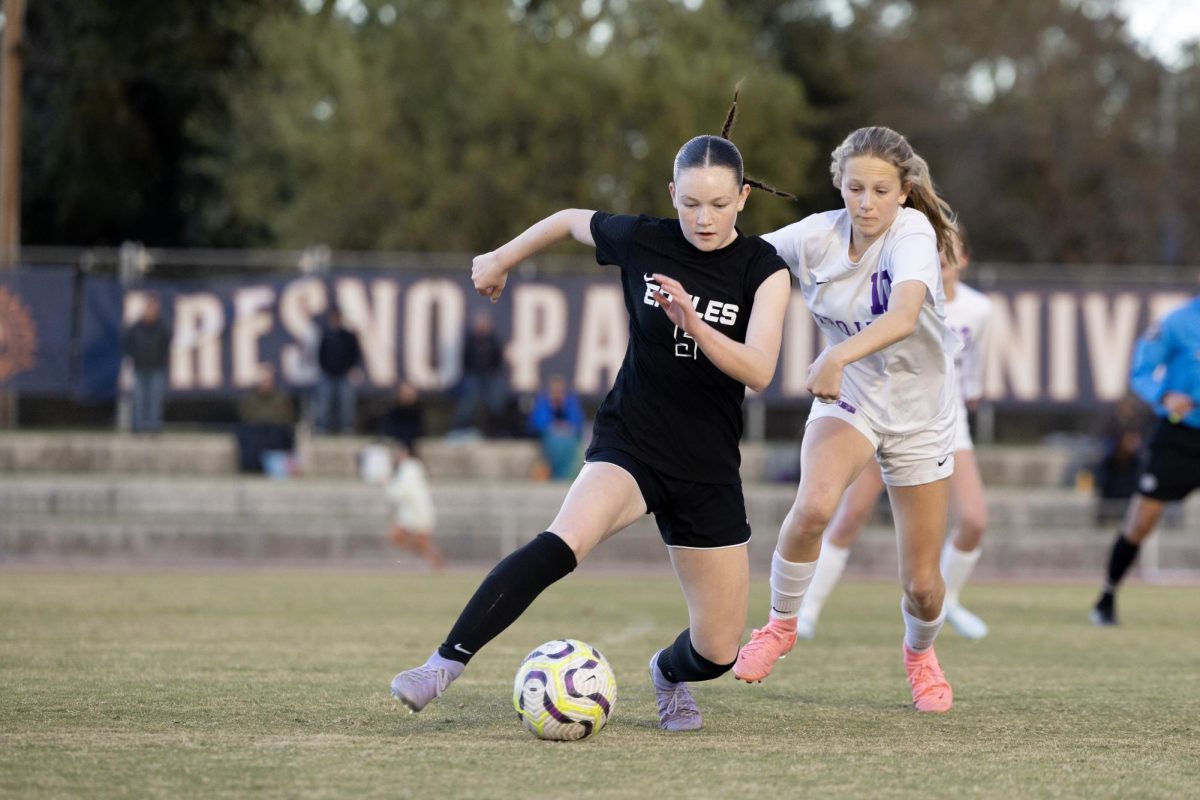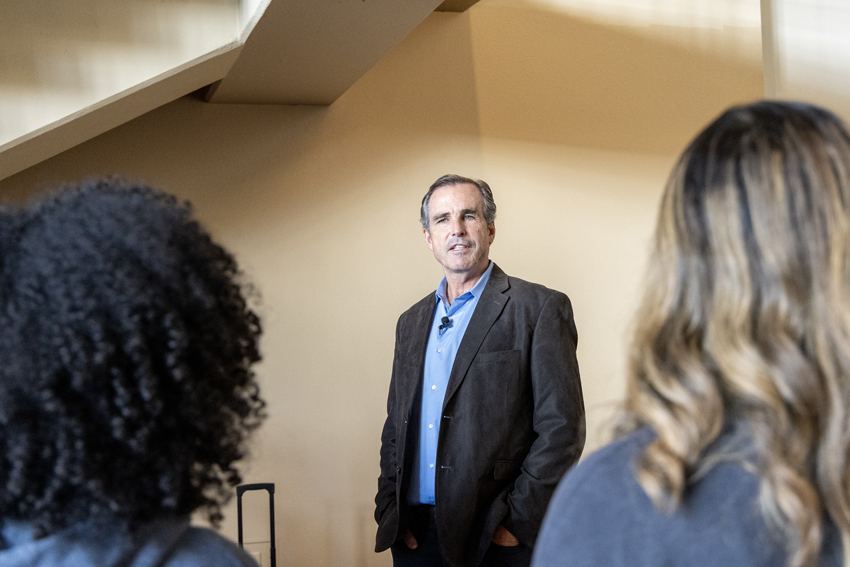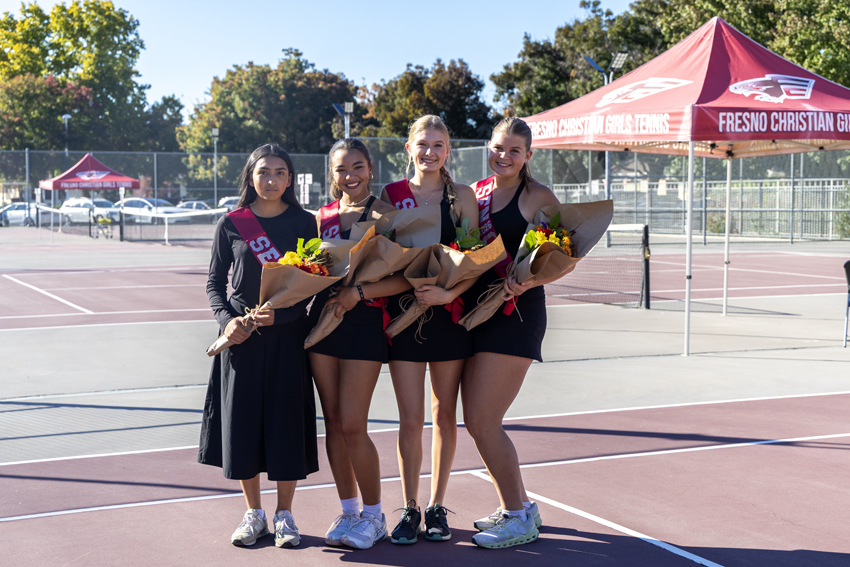This is the second in a two-part feature following alumnus Matthew Nickel’s, ’08, time studying abroad in Egypt during the civil war and protests against Hosni Mubarak.
For the previous article, read the Oct. 12 article, Alumnus studies in Egypt, watches Cairo protests.
Matthew Nickel, ’08, had a life-changing experience when he had the opportunity to study abroad in the Middle East in the spring of 2011. Nickel was in Egypt during protests against the president, Hosni Mubarak, which turned his trip into a semester he will never forget. The program that Nickel went through was based in Cairo, where many of the protests took place.
On the Day of Rage, Nickel was unable to contact anyone via email or phone, because the phone lines had been cut and the Internet was being controlled by the government. Though used to being without electronics due to his studies of outdoor education, the inability to contact anyone proved an interesting experience for Nickel.
“I had never been someplace where I had electronics but couldn’t use them to contact people,” Nickel said. “I’m an outdoor education minor, so I’m used to being out of contact with people for extended periods of time, but that’s been by choice. My parents had called just before the connection was cut off, so they knew I was safe.”
Peggy Nickel, Matthew’s mother, reveals how often she was able to communicate with Matthew while he was away.
“We heard from him personally, on average, a couple of times a month,” Peggy said. “He and a friend posted a few videos, and I followed his activities on Facebook through pictures and the comments of fellow classmates.”
Peggy also remembers her initial reaction to the news and how she was able to calm her motherly instincts.
“I first heard about it on the news and then got updates from a representative of the program,” Peggy said. “It took a couple of days before Matt could get to a place where he had Internet. I’m a typical mom with a vivid imagination, but God, in his amazing grace, had prepared me ahead of time. I had a sense of foreboding before he ever left, so I had started praying early for him and the others in the program.”
On Jan. 29, Nickel and his group took the train back to Cairo, where the train stopped for only about one minute. Nickel notes that some people in his group were still trying to get off the train as it began moving.
“There were people jumping on the train just trying to get out of Cairo,” Nickel said. “It was crazy and a little intimidating, because there were people walking around with guns, knives and samurai swords. I had never been in a place that felt so tense all of a sudden.”
Though the citizens initially appeared intimidating, Nickel found that they were nothing but kind-hearted toward his group. When Egyptian citizens discovered that Nickel and his group were Americans, they were very apologetic.
“They could see that we were Americans, and would say, ‘We’re so sorry you came to our country at this time. We don’t want you to feel unsafe. This is not about you. We don’t want to hurt you,'” Nickel said. “They were really passionate about and invested in the changes taking place in their country, but they were also very relational toward us. It was really cool to see the political side of the people in addition to their personal sides.”
Nickel reflects on a moment during the revolution that had an affect on him and that served as proof to him that the Egyptians weren’t just violent protesters.
“I remember watching the police harassing the protestors during Friday prayers on live state TV,” Nickel said. “Some Christian Arabs stood around them with their hands locked together to protect them from the police while they were praying. It was proof to me that the revolution wasn’t about violence, and it wan’t just a Muslim thing. It was an Egyptian thing. It was interesting to see people who rarely interacted well, if at all, come together for a dignified revolution.”
Nickel stayed updated on the revolution through state television and any other kind of media. When watching reports of the situation in Egypt on news channels, Nickel often felt frustrated with the way the protesters were portrayed.
“I know I don’t have a right to choose a side, but I was totally on the side of the protesters,” Nickel said. “I was proud of friends who did go protest, and I was really proud of the way the protesters handled things. It wasn’t the same as what we’ve seen in other countries. What angered me was watching American and European media. What was displayed and talked about wasn’t what I saw. It hurt me, because there was a concept that these Muslims were out of control, when they really weren’t.”
Nickel remembers being told about a huge state police force, with hundreds of thousands of people. There were even more undercover police. These police forces created a fear of the state within Egyptian citizens. Nickel believes the revolution gave people the opportunity to express their real feelings about the government.
“When asked how they liked their country, people always pasted big smiles on their faces, but they were really afraid,” Nickel said. “They never knew who was listening or when the undercover police were present. When the revolution started, that all changed. People were cautious at first, but they became more open as the revolution progressed.”
Nickel was in Egypt for about three weeks, and during his time there, he learned to respect Arab culture and Islamic culture. He learned that not all Arabs are Muslims, but people usually stereotype and accuse them. To Nickel, this didn’t seem like a Muslim revolt as much as a revolt against a dictatorship.
Nickel’s group was in Egypt for the first six out of 17 days of the rebellion. After that, the group stayed in Istanbul, Turkey for two weeks and then spent time in Israel and Jordan for the rest of the semester. They had planned on visiting more countries, but some places were cut due to the revolution. The Tantur Ecumenical Institute allowed Nickel and his group to set up their program in their center.
While admitting that the revolution was the most unforgettable part of his trip, Nickel believes the trip was more than just the revolution.
“The revolution was the most memorable part of the trip, but it was much more than that,” Nickel said. “My semester wasn’t about the revolution. There were several months after the revolution that I spent learning about the Middle East. I loved the trip. I would not trade that experience I had for anything. It was the single most impactful experience I’ve had in my entire life.”
Throughout the trip, Nickel believes that he stayed relatively calm considering the circumstances.
“I like to think that I kept calm,” Nickel said. “I had a little bit of initial fear of uncertainty but I never had fear for my safety. I was little afraid, but beyond that I was mostly just excited for my Egyptian friends. I was witnessing history in the making.”
Though he is grateful that he was able to have this experience, Nickel explains that he never hopes another student will go through the same experience.
“I would never wish that experience on any other student,” Nickel said. “It was big for me and I learned a lot, but over five hundred people died while trying to take Mubarak from power. However much I learned about politics, media and religion, five hundred people’s lives are not worth my education. If I had to go back and know that it was going to happen again I would still go, but I wouldn’t wish that situation on other students. I wouldn’t trade the trip for anything.”
For more features, read the Oct. 22 article Beach trip provides bonding, energized fans (VIDEO).







Brandon McCormick • Aug 17, 2012 at 12:04 am
Witters is an amazing and funny guy. I have got to grow up around him and he has made an impact on things to do in life but also things not to do. Hope his words were encouraging. I wish I could have been there.
Maddie Yee • Aug 17, 2012 at 12:04 am
It was such a great opportunity getting to listen to Eric Witters and his experience with journalism. Hearing about how his career started with being in Mr. Stobbe’s class was encouraging because it shows that through a little experience of something (in high school), a greater passion can develop.
Brady Lee • Aug 17, 2012 at 12:04 am
I have known Eric Witters since I was in 5th grade. I thoroughly enjoyed listening to his journalism talk. He is a great communicator and I hope the best for him as he pursues a teaching career next year.